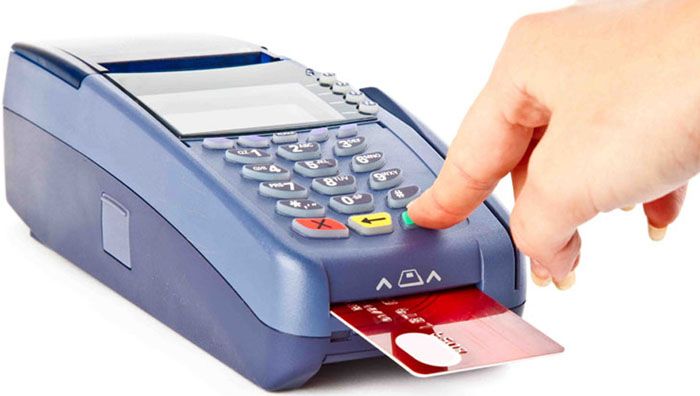How to maximise your credit card points before the RBA apocalypse

Disclaimer
Executive Traveller may receive a commission when you apply for these credit cards via our links.
The information provided on this page is purely factual and general in nature. You should seek independent advice and consider your own personal circumstances before applying for any financial product.
With the Reserve Bank of Australia moving to cap credit card ‘interchange fees’ from July 1 2017, many Aussie banks are cutting the number of frequent flyer points that can be earned per dollar spent: but that’s no reason your own pile of points should stop growing!
Read: How the interchange cap will affect credit card frequent flyer points
Here’s how you can make the most of the credit cards you already have in your wallet before those changes kick in, and how to continue earning frequent flyer points at high rates once the new financial year kicks off.
1. Pay next month’s bills early to earn more points
Have any bills to pay over the coming months, such as for insurance, car registration, electricity or council rates? Paying those bills early – before the earning rate changes on your credit card – not only gets them out of the way, but will fetch you more points too.
For instance, if you currently have a CBA Diamond Awards American Express card, a $1,000 bill payment this month could earn you 1,500 Velocity points or 1,200 Qantas Points, depending on the rewards option you choose.
Make that same payment on next month’s card statement and that’d be slashed to just 250 Velocity points or a mere 200 Qantas Points when spending the same amount on the same card – so given these would be bills you need to pay anyway, there’s no harm in paying-up early!
Although the RBA interchange caps kick in from July 1, different banks are changing their earn rates from different dates: Citibank, Diners Club, Virgin Money and Card Services are first with reduced earn rates from June 15 2017, while G&C Mutual Bank isn’t far behind on June 18: all of which will award no points at all on government spend from those dates, including on car rego and rates: another reason to pay your bills sooner.
That’s followed by CBA, NAB and Westpac from July 1 – CBA’s changes applying to credit card statements issued from July rather than transactions made from July – and by ANZ from August 5, which is when the bank will also deactivate any remaining ANZ American Express cards.
In short, make a payment before your bank’s cutover date and you’ll earn points at the current, higher rates. Wait until after those dates and you’ll earn fewer points instead, or in some cases, no points at all.
2. Consider over-paying your recurring monthly or quarterly accounts
Following the same principle, if you have bills that arrive every month or quarter – such as for your landline, mobile phone, Internet or electricity – and your biller accepts one-off credit card payments, you could over-pay your account now: the value of which can be used later.
For example, if your mobile phone account usually costs around $90 per month and you’re planning to stick with your current provider (or you’re under contract), you could make a one-off payment of $540 this month to cover the next six months of bills, while your credit card is still churning out points at solid earning rates.
Again, this is money you’d otherwise be spending – so you’re not ‘wasting money’ on unnecessary purchases just to earn points – you’re simply spending that money sooner to maximise your return in points.
(We know you’re smart and will aim to repay your credit card balance in full every month to avoid any interest charges, but it goes without saying that this strategy won’t prove as rewarding if you’re carrying a balance from month to month and will be stung by added interest charges on those early payments.)
3. Top-up your public transport card, tolling account and petrol tank
If you regularly catch public transport and have an Opal, Myki or Go Card, topping-up your card now is another way to take advantage of your card’s current, more generous frequent flyer earning rates.
Go Card and Opal cards can have a balance of up to $250, while Melbourne’s Myki system allows balances of up to $999.99 per card – but caps each individual top-up transaction to a maximum of $250, so heavy public transport users might consider making multiple top-ups to approach that limit.
(Do make sure your public transport card is registered and record those details in a safe place, so that it can be cancelled and replaced in the event of loss or theft, along with your stored balance.)
Pre-paid road tolling accounts function in much the same way for motorists – just check whether your provider charges an additional fee for one-off manual top-ups in place of your usual direct debit, and while you're at it, consider filling up your petrol tank too for a few extra points.
4. Pay your rent early using your points-earning credit card
If you don’t own your own home or business premises, you know you’re going to have to pay your rent every week or month regardless: so why not pay some more of that rent now while your card is still paying out the most points?
Let’s say your rent normally costs $2,000 per month – so in addition to paying this month’s rent via your credit card, you could also pay next month’s too, either direct to your real estate agent or via credit-card-accepting rent payment services like Rental Rewards and DEFT.
There’s usually a small surcharge involved (typically 1-3%), but if your card currently earns a reasonable number of points and you use those points well, such as to book business class or first class flights or upgrades, the numbers will usually be in your favour.
5. Get your wallet ‘July 1 ready’
With so many credit card changes taking place right now, many spenders are considering their options going forward to earn points on money spent from July – including whether to keep their current credit cards or swap them out for new ones which may deliver more points.
Here are some of the top cards and offers currently on the table:
- AMEX Qantas Ultimate Card: Earn 1.5 Qantas Points per dollar spent on everyday purchases, uncapped, plus 55,000 bonus Qantas Points for eligible new cardholders and a free return flight every year against a $450 annual fee.
- AMEX Velocity Platinum Card: Pile up 1.5 Velocity points per dollar spent on most charges, also uncapped, with a great bonus of 100,000 Velocity points for eligible new cardholders, Virgin Australia lounge access and a return flight every year with a $375 annual fee.
- AMEX Explorer Card: Earn the equivalent of 1.5 frequent flyer points per dollar spent with airlines like Virgin Australia, Singapore Airlines, Cathay Pacific, Emirates and more, plus the equivalent of 37,500 bonus frequent flyer points for new cardholders and a $400 travel credit each year to offset the $395 annual fee.
- ANZ Frequent Flyer Black Visa: Earn one Qantas Point per dollar spent up to $7,500 per month and 0.5 Qantas Points per dollar spent thereafter, plus 75,000 Bonus Qantas Points and 75 Bonus Status Credits for eligible new customers who apply, are approved and meet the spend and travel criteria, with no annual fee in the first year either.
- ANZ Rewards Black Visa: Receive the equivalent of one Velocity point per dollar spent on all charges right now and on charges of up to $5,000 per month from August 5, and 0.5 Velocity point per dollar thereafter – plus the equivalent of 37,500 bonus Velocity points for eligible new customers and no annual fee in the first year.
- Westpac Altitude Black: Pairing an American Express and a Mastercard on the one account, earn up to 1.25 Qantas or Velocity points per dollar spent via the AMEX and up to 0.625 Qantas or Velocity points per dollar spent through the Mastercard as of July 1, plus 80,000 bonus Qantas points or 40,000 bonus Velocity points for eligible new customers and a reduced annual fee of $199 in the first year.
Disclaimer
Executive Traveller may receive a commission when you apply for these credit cards via our links.
The information provided on this page is purely factual and general in nature. You should seek independent advice and consider your own personal circumstances before applying for any financial product.


25 Sep 2013
Total posts 1242
The RBA apocalypse!! LOL I almost spat out my morning coffee
Qantas - Qantas Frequent Flyer
21 Jan 2014
Total posts 318
I am yet to receive official notification from 2 of my 3 card providers that the points will actually drop on July 1, if I hadn't read about it on here I wouldn't have known,
13 Feb 2015
Total posts 13
Very sound ideas here, Chris, about paying bills early but NO WAY do I ever do that, even for extra points, when a lot of these utility/private companies are already selling their products-services at over-inflated rates. Giving them money ahead of time is like rewarding them for their shonky business practices. *rant over*
13 Sep 2016
Total posts 55
So your choice is to pay the bill now and early loads more points, or pay the same amount of money a month later and earn a lot less points? I know which one I'd choose!
13 Feb 2015
Total posts 13
yes, that's what I chose - points can easily be earned elsewhere.
Qantas - Qantas Frequent Flyer
14 Sep 2012
Total posts 382
I'm waiting for all the dust to settle and review offers later in the year.
24 Feb 2017
Total posts 14
I wouldn't pay the bills early due to the opportunity cost, particularly when payments are offset monthly against a mortgage. Whilst the same principle applies, I personally find better value in getting rewards points and cashing in with vouchers than converting to QFF or Velocity points.
Hi Guest, join in the discussion on How to maximise your credit card points before the RBA apocalypse